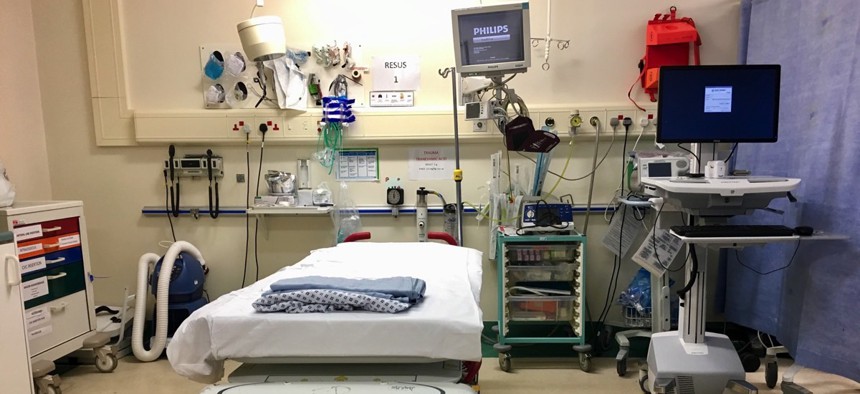ACA Repeal Threatens Maine's Rural Hospitals; RV Tax Evasion in Montana

Also in our State and Local Daily Digest: Denver debuts connected neighborhood; Texas vs. county on immigration; Uber drivers sleeping in cars
AFFORDABLE CARE ACT | Repealing the Affordable Care Act without a replacement plan could deal a heavy blow to the finances of Maine’s rural hospitals. Maine’s hospitals and clinics are obligated by law to provide “medically necessary” care to those who can’t afford it. “We’re all worried,” said Jeffrey Austin, vice president of government affairs at the Maine Hospital Association. “The average operating margins in Maine hospitals are about 1 percent. There just isn’t room for dramatic negative impacts.” [Portland Press Herald]
TAX POLICY | Buyers of RVs and expensive sports cars from around the country have been using a tax loophole in Montana to avoid taxes on their purchases. “It started off as motorhomes and now there are other vehicles in the mix,” said Joann Loehr, Montana’s title and registration bureau chief. The tax evasion strategy involves a person setting up a limited liability company in Montana to avoid paying taxes in their home state. [Bozeman Daily Chronicle]
SMART CITIES | Panasonic gave a preview of its ongoing project to create a connected neighborhood from the ground up in Denver, Colorado at the Consumer Electronics Show in Las Vegas. It will feature automated shuttles that will transport residents to the nearby rail line, free wifi, and even smart LED streetlight poles that will include sensors that sniff up environmental data such as “air particles, solar cloud coverage, noise, temperature and humidity.” The neighborhood, called “Pena Station Next,” is situated south of Denver International Airport. [The Denver Post]
IMMIGRATION | Texas Gov. Greg Abbott threatened to defund Travis County law enforcement, after its sheriff announced her decision to cease cooperation with federal immigration officials on deportation detainers. The Republican-controlled legislature is increasingly expected to pass a law penalizing or prohibiting “sanctuary cities” [Houston Chronicle]
LOANS | A Maryland water utility, the Washington Suburban Sanitary Commission, has agreed to deposit $10 million in federally insured, D.C.-area banks in return for $20 million in new loans committed to small businesses in the state’s suburbs. The partnership is modeled after Maryland county government programs intended to create jobs without spending taxpayer money. [The Washington Post]
RIDE-HAILING | Some Uber drivers who work in pricey cities are spending their nights sleeping in their cars in parking lots. “It’s my second home. We have this joke that I’m the resident. I keep asking them: ‘Hey, did my mail come in yet?’” said one driver who regularly sleeps in a 7-11 parking lot in Chicago known as the “Uber Terminal.” [Bloomberg Technology]
INFRASTRUCTURE | An error made six years ago during construction could have caused the rupture that was found in a steel beam in the Delaware River Bridge. That cracked truss has forced the closure of the bridge that runs between Burlington County, New Jersey and Bucks County, Pennsylvania. While the bridge was being built, holes were mistakenly drilled into the beam and then patched with plug welds, a common solution at the time of construction in the 1950s. [Philly.com]
NEXT STORY: NYC311 draws record number of digital requests





